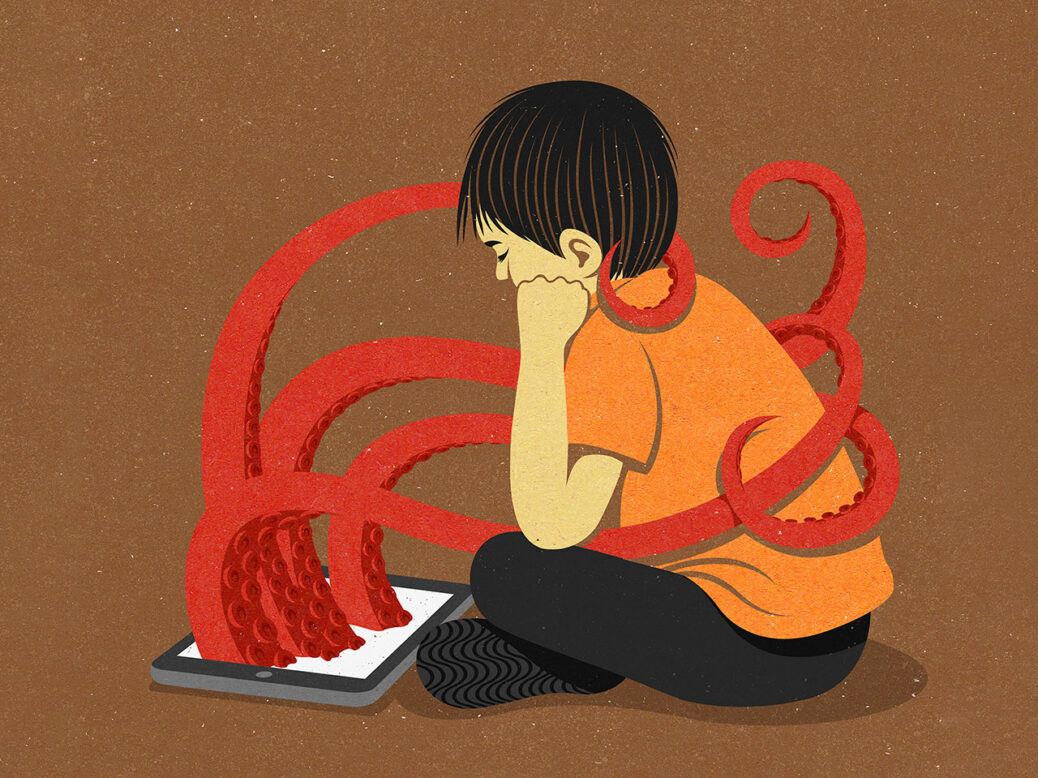
We are too online. Few would disagree with the argument that over the past few years, particularly since the pandemic, we have developed an unhealthy relationship with social media and become addicted to our screens. Our time is being sucked away by our phones – something especially true of children and young adults.
We know we would benefit from reducing this time; from “logging off”. But despite how commonly held that realisation is, we rarely quantify exactly how much time we are spending online each day, or even what “too much time” on our screens might mean. We seem to be getting closer to a consensus, though. This year, it was reported that children aged 11-14 in the US, spend nine hours a day in front of a screen. Just last week, TikTok announced an automatic time cap for under-18s of an hour a day, which if surpassed, will then let the user enter a password to spend another 40 minutes on the app (if a parent allows, they can disable the feature entirely, but if they do so and spend more than 100 minutes on TikTok a day, they’ll be prompted to set a new limit). On Instagram, parents can set limits for their kids of up to two hours a day.
There have been countless moral panics about the terrible things our phones are doing to our lives, yet we have normalised the huge amounts of time we spend online – and we are often reluctant to admit that our sense of healthy screen time is completely warped. Though we are eager to criticise social media and to extol the virtues of getting offline, we appear to have lost all sense of how much of our lives should be spent online.
This normalisation of endless screen time is enabled by thinking in terms of time spent on individual apps: this allows us to break down our time on our phones into smaller segments, rather than face the shocking total. Reducing three hours spent daily on TikTok to one or two avoids how many hours are also spent on Instagram, Snapchat and messaging apps. How can a child – who is at school until around 3.30pm – make room for a home and social life each day when social media is taking up so much of it?
[See also: Let’s call time on the Doomsday Clock]
There is much hand-wringing about how excessive screen time affects children – though it is undeniably an important issue. But most adults would benefit from examining their own digital consumption too. For all we talk about the negative impact on kids – be it the potential for radicalisation, exacerbation of insecurities or reduced attention spans – adults aren’t immune from their consequences either. But attempts at seriously addressing our own digital consumption are almost non-existent. Real conversations about it – with everyone, not just kids – are often met with a defensive tone, suggesting that a critique of high daily screen times is a form of “shaming”. The phrase “phone addiction” is thrown around by adults as a self-deprecating joke about their social media usage, but for some the prospect of using their phones less seems to be a seriously frightening topic.
The question we should be asking is this: what are we gaining from so much screen time? And what are we losing? I don’t know anyone who gets to the end of a day glued to their phone and isn’t left with a gross, sickly feeling. Meanwhile, it’s rare to hear someone say that cutting down on their screen time has been anything but beneficial.
Besides its potential unhealthiness, spending this much time online is rarely fun. Many if not most of us are “mindlessly scrolling” through repetitive social media trends out of impulse or habit. There’s a limit to how much we can get out of such an activity each day – and though that maximum might be different for each of us, it undoubtedly takes only a few hours to reach it.
Society’s addiction to its devices is a complex problem: solving it is not just a question of individuals cutting down on screen time, but resolving the social and economic problems that make social media, for some, a necessary escape, and weakening the attention economy’s grip on our culture. Yet this problem will only get worse if we continue to deny the reality: that spending most of our days in front of a screen negatively impacts our lives. We need to acknowledge how being online so much that is eating away at our lives.
[See also: Time spent on social media isn’t necessarily bad for kids – it’s how they use their screen time]





